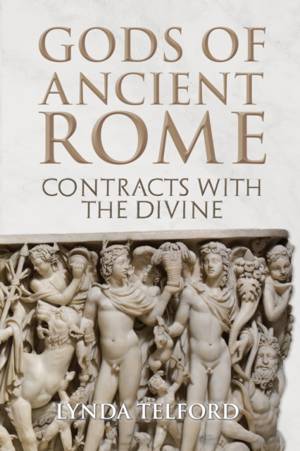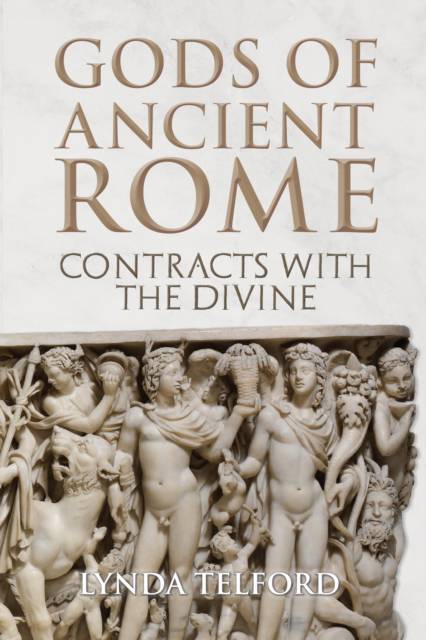
- Afhalen na 1 uur in een winkel met voorraad
- Gratis thuislevering in België vanaf € 30
- Ruim aanbod met 7 miljoen producten
- Afhalen na 1 uur in een winkel met voorraad
- Gratis thuislevering in België vanaf € 30
- Ruim aanbod met 7 miljoen producten
Zoeken
Omschrijving
Roman religion was certainly a contract with the Gods, offering devotion and the blood sacrifices which 'nourished' them in exchange for their continued protection and for Rome's security and prestige. This 'contract' was a very real expectation that the gods were alive and aware, and that in return for human worship they could, and would, honour their part of the bargain. If this bargain was not honoured, then its nullity could bring disaster. This was best shown by the utter astonishment in Rome at the news of the defeat at Cannae in 216 BC. Surely the gods were unhappy: and two Vestal Virgins were chosen to be buried alive to appease them. The original gods and goddesses would be joined, but not superseded, by the Greek gods, who, with their names changed but their anthropomorphic characteristics intact, also served Rome and gave her their support. There would eventually be others, foreign gods from the East, bringing new ideas to Rome, along with outlandish and curious ceremonies, weird and wonderful gods like nothing ever before seen requiring initiations, sacrifices and rituals of their own, performed by equally unusual priests, some of them celibate, who would add to the already overmanned Roman priesthood with its many Flamens, Pontifices, Augurs and Haruspices, bringing even a tantalising whiff of magic. All of these would eventually become accepted, by all classes of society. With chapters on the Numina, emperor worship, the festivals and magic, Gods of Ancient Rome presents this complex but fascinating subject for the non-specialist reader.
Specificaties
Betrokkenen
- Auteur(s):
- Uitgeverij:
Inhoud
- Aantal bladzijden:
- 288
- Taal:
- Engels
Eigenschappen
- Productcode (EAN):
- 9781398111646
- Verschijningsdatum:
- 23/07/2024
- Uitvoering:
- Hardcover
- Formaat:
- Genaaid
- Afmetingen:
- 165 mm x 239 mm
- Gewicht:
- 635 g

Alleen bij Standaard Boekhandel
+ 64 punten op je klantenkaart van Standaard Boekhandel
Beoordelingen
We publiceren alleen reviews die voldoen aan de voorwaarden voor reviews. Bekijk onze voorwaarden voor reviews.











